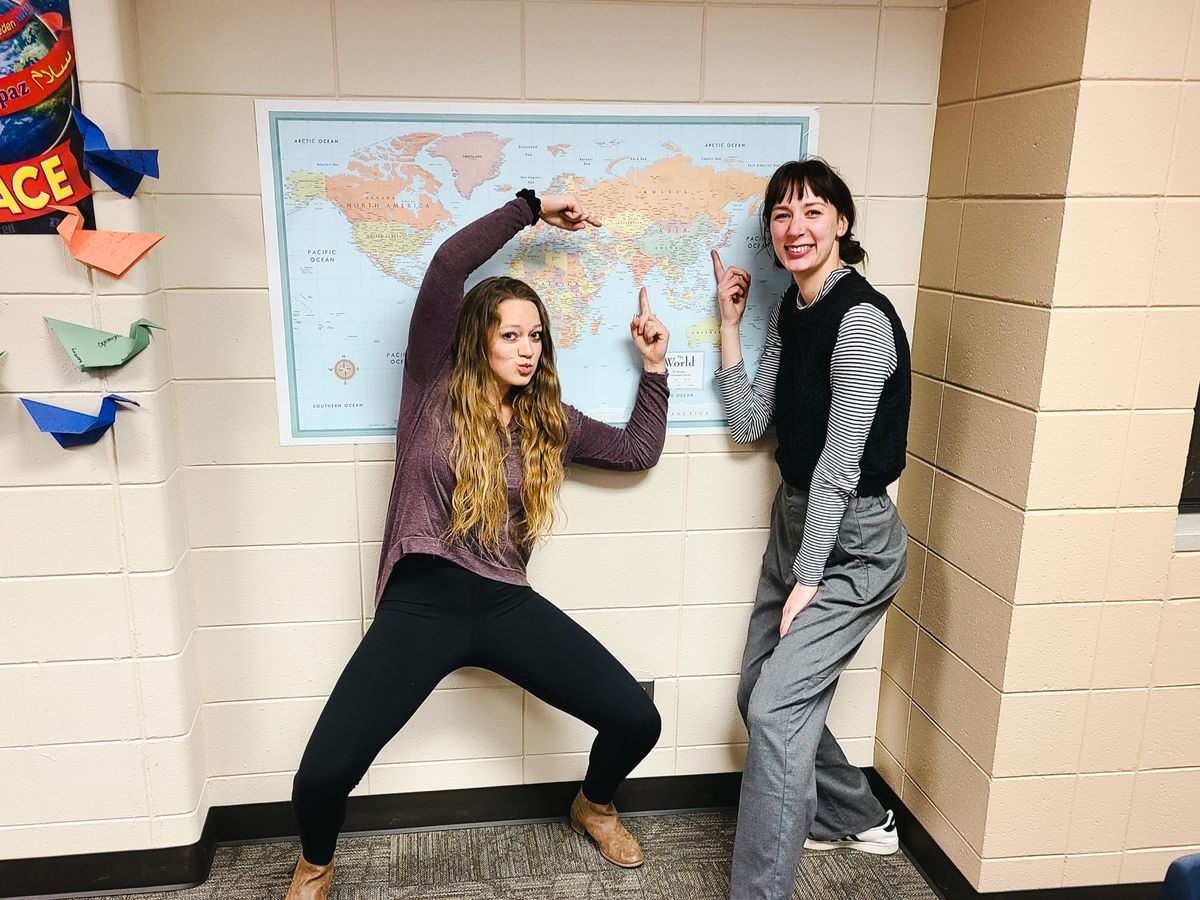Students win language scholarship abroad

A summer in a beachy city in South Korea and in an arts-centered city in India will become reality for two students. The Critical Language Scholarship awarded seniors Camryn Hay and Becca Ziems the paid-for language-learning experience.
CLS is a program through the U.S. Department of State that sends college students abroad for six to 10 weeks to learn one from a set of 15 languages critical to national security and economic prosperity.
“I think every language has a lot of value and is important, but I guess these in particular are very useful for our country and our connections with other places in the world,” Ziems said. “Just in general, I think it’s important. I guess this falls back to why learning languages is important to me, just like the connections it forms and just the potential for more understanding between different peoples, different cultures.”
Hay will learn Korean at Busan National University in Busan, South Korea, while Ziems will go to Lucknow, India, to learn Urdu at the American Institute of Indian Studies. Sophomore Liz Fossum is a semi-finalist for learning Urdu.
Hay, an English major with a minor in philosophy, has been self-teaching Korean for two years because she knew she wanted to teach abroad in that area of the world.
“The more I learned about Korean language and the culture and the country, I just fell more and more in love with it,” Hay said.
CLS gives her the opportunity to immerse herself in the language and culture by having a native-speaking language partner and speaking to her fellow Americans only in Korean.
“Culture and language for me go hand in hand, you can’t learn one without learning the other, especially Korean because the social culture of hierarchical stuff and respect for people who are older than you, it’s built into the language,” Hay said.
After learning Korean and teaching English in the Korean school system, Hay plans to get her master’s in Seoul in Korean language and literature and study modern Korean visual culture for her doctorate. All this is so that she can become a professor in something she’s come to love about Korean culture: film.
“I think the way that the film industry of Korea tells stories is it’s a lot more powerful and meaningful when you can dig into it yourself,” Hay said. “It will mean something different to every person depending on how they interpret it.”
Some 3,000 miles away in India, Ziems will be learning Urdu, a language spoken mainly in northern India and Pakistan. The Urdu program in CLS requires no prior knowledge of the language, but Ziems has been learning pieces of the language from one of her closest friends, senior Taha Afzal, an international student from Pakistan.
Afzal and Ziems were studying in the Huddle one day, as they usually do, when they decided to start teaching each other. Ziems, a Spanish and education major, would teach him Spanish while he taught her the same words in Urdu.
They have one rule: once they’ve learned it in Spanish/Urdu, they can’t say that word in English to each other.
During Ramadan, Ziems said when she’d been up all night doing homework, she’d stay up through 4 a.m. to spend time with Afzal during the Ramadan meal. They’d sip chai and chat about Pakistani culture and Urdu.
“There’s nothing like the way language connects you with people in the world,” Ziems said. “It’s just amazing.”
Ziems’ goal is also to teach English abroad. She recognizes the need for international connections and feels inspired by a virtual language buddy program she participates in.
“Once you learn one, others fall in more easily than if you hadn’t learned any at all,” Ziems said. “So I just enjoy it. I’m kind of a nerd for linguistics.”
Fossum, who is studying abroad in Rome, Italy, this semester said she applied for CLS because she heard about the program before coming to AU and hopes to become a foreign service agent for the U.S. Department of State.
“I received the news about two weeks ago that I was an alternate for the program which is really exciting,” Fossum said. “So currently I’m in a middle space where I could be bumped up into being a recipient. There is a possibility, but either way I know at least that I’m an alternate, which is pretty cool.”
Travel fuels Fossum’s language learning. She said after almost dropping out of Spanish in high school, she took a family vacation to Spain.
“Being abroad — we went to Paris, Amsterdam and parts of Norway — I realized how many other people knew multiple languages and just the understanding that comes from being able to talk with people and have different avenues to be able to communicate with people on so many different levels,” Fossum said.
Professors David O’Hara, Jennapher Lunde Seefeldt and Joseph Patteson are the CLS representatives on campus and help with the application process, which requires five short reflection essays and a letter of recommendation. The program’s purpose is to allow participants to become informal diplomats between American culture and that of the host country.
“I think that living somewhere is the best way to make exponential leaps in learning the language because you’re super immersed,” Hay said.



